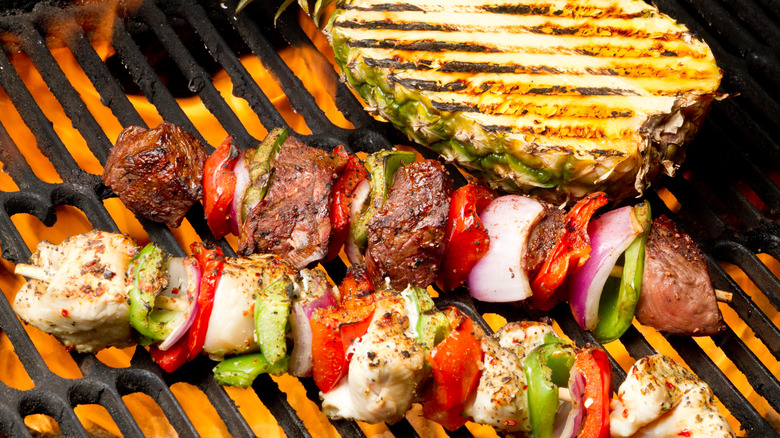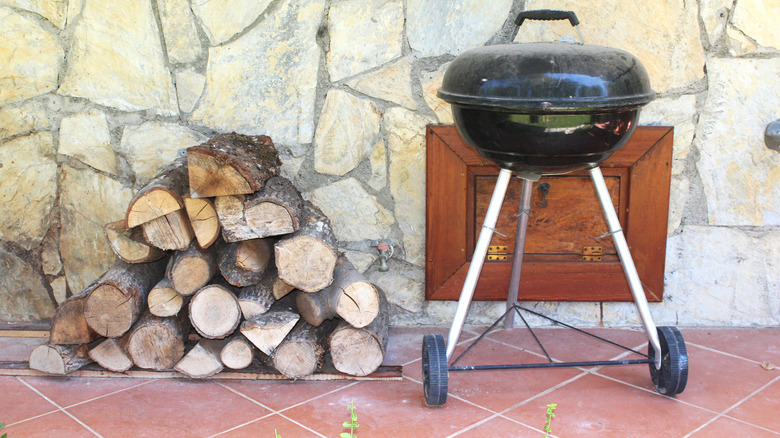When To Use Lighter Vs Stronger Woods For The Best Barbecue
Whether you are hosting a barbecue bash for a crowd or simply cooking up a quality steak for yourself, you may be wondering whether to use charcoal or wood to fire up your grill. Well, while charcoal can be an easier choice, wood is worth the extra work if you are hoping to infuse your food with more complex flavors. But with so many types of grilling wood to choose from, it can be tricky to nail down exactly which kind works best. While a lighter wood may do little in terms of enhancing your food's flavor, a darker, stronger wood may completely overpower the taste of your spread — but fret not. Tasting Table spoke with Brazilian grill master and private chef Silvio Correa to get an expert's breakdown of which type of wood will give you the most bang for your barbecue.
According to Correa, "The key is matching the wood intensity to the protein — lighter meats need a subtle touch, while heavier meats benefit from stronger smoke." To get more specific, Correa explains that "delicate meats like fish, chicken, turkey, and even vegetables" call for lighter types of wood, such as apple, cherry, and maple. However, when cooking darker meats, Correa recommends lighting up darker, stronger woods that supply more potent and powerful flavors. Options like hickory, mesquite, and oak are "ideal for beef, pork, and game meats that can handle a more intense smoky profile," Correa explains. Of course, each wood comes with its own potential benefits.
Different woods can achieve different flavors
If you've got chicken wings, fresh veggies, or the catch of the day on deck for dinner, take chef Silvio Correa's advice and stick to apple, cherry, or maple woods for your grill. Indeed, all three are known for delivering a milder, sweeter smokiness when burned, which works beautifully to complement white meats and vegetables without overtaking their taste. Additionally, applewood and cherrywood are hailed for their ability to provide a subtle but pleasantly fragrant fruitiness to barbecue dishes and are well-suited for combining with other types of wood to round out their flavor profiles.
However, if you are planning to feast on brisket, ribs, lamb, and wild game, stock up on Correa's suggested oak, hickory, and mesquite woods. Although it has a stronger presence than a fruitwood, oakwood imparts a medium smokiness that, while assertive, isn't super overpowering. This makes it a versatile grilling option that can also be paired with both lighter and heavier woods to achieve a balanced woody flavor.
Hickory and mesquite woods are on the more robust ends of the spectrum; hickory has a slight sweetness and bacon-like notes, while mesquite provides a sharp, smoky pungency that is excellent for flavoring dark meats but can veer towards bitter if left burning too long. That said, both oak and hickory are great for long, slow burns that build up the smokiness. Mesquite, on the other hand, is known for scorching hot and fast, so it should only be utilized for quick smokes and sears.

